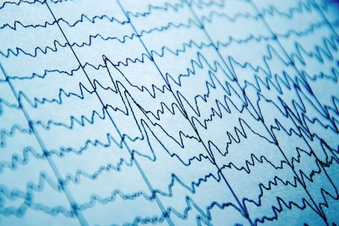What Can Happen With Acute Hepatic Porphyria

What Happens in Acute Hepatic Porphyria (AHP)?
In AHP, you have too little of an enzyme needed to make an iron-containing substance called heme. Other substances that help to make heme build up in your liver and become toxic. You may not have symptoms, or they may be ongoing and may happen in sudden attacks. But more than 90% of people with symptoms have only one or a few acute attacks in their lifetimes. A very small number have frequent attacks (four or more in a year).

Your Symptoms May Vary
AHP affects your nervous system and organs. Along with attacks, some with AHP may have signs that don’t go away. Belly pain is common. You could have other symptoms, including:
- Nausea, vomiting, diarrhea, constipation
- Back or chest pain
- Weakness and fatigue
- Fast heartbeat
- Seizures
- Blistering skin
- Anxiety, confusion, depression
More than half of those who have repeated attacks report chronic neurologic symptoms.

Nerve Pain
More than a third of those with AHP who have attacks have a diagnosis of neuropathy (nerve damage). Your AHP may cause pain in many parts of your body as the toxins affect your nerves. It may affect your:
- Belly
- Chest
- Back
- Legs or arms
You may need to take medications to help you manage the pain. If you’re having an acute attack or more severe symptoms, you may need to go to the hospital for stronger pain medicines.

Gastrointestinal Symptoms
If AHP is affecting nerves in your stomach or other parts of your digestive system, you may have:
Nausea
Vomiting
Indigestion or stomach upset
Constipation
Diarrhea
You can try over-the-counter medicines to help with these symptoms if they’re mild. But when nausea or vomiting is severe, you may need prescription medicines to help. IV fluids or nutrition can help if you aren’t able to eat or drink during an attack.

Mental Health Effects
AHP can affect your brain, leading to mental health problems. Symptoms may include:
Anxiety
Insomnia
Depression
Delirium or hallucinations
If you have concerns about your mental health, be sure to let your doctor know. Usually, mental health symptoms related to AHP, including anxiety and hallucinations, don’t last long.

Seizures
The effects of an acute hepatic porphyria attack on your brain and central nervous system may also cause seizures. You may lose awareness and have uncontrollable movements. About 2 in 10 people with AHP will need medicines to help with seizures when they’re having an attack.

Weakness, Fatigue, and More
AHP can affect other parts of your nervous system, too. This includes the peripheral nerves that send messages from your brain and spinal cord out to other parts of your body. Effects on your peripheral nervous system may include:
Weak muscles
Numbness or tingling
Fatigue or low energy
Loss of senses
Not being able to move your muscles (paralysis)
Weakness or not being able to use muscles needed for breathing (respiratory paralysis)

Heart Palpitations and Blood Pressure
AHP can affect your autonomic nervous system. This includes the nerves that control your body’s involuntary movements, including your heartbeat. When this happens, you may notice your heart pounding or skipping beats. If this happens to you, see your doctor to confirm the cause and what to do about it. Changes in your autonomic nervous system can also raise your blood pressure. When your blood pressure is high, you may need to take medicine to lower it.

Skin Reactions
Some types of AHP can lead to skin reactions or sensitivity to sunlight. You may have:
A rash with blisters
Changes in the color of your skin
Scars
You can prevent these complications by protecting yourself from the sun. Stay out of the sun as much as possible. Wear a hat and protective clothing when you do go out. Use a broad-spectrum sunscreen with a titanium dioxide or zinc oxide base.

Dark Urine
You may notice that your pee looks darker than normal. It may be a red or purple color. The reason is that the substances that build up in other parts of your body are ending up in your urine, too. If you’re noticing a change in the color of your urine, see your doctor. Dark urine that’s red, purple, or brown could be a sign your AHP is getting worse or that you may be having an attack.

Signs of an Acute Attack
Acute attacks are a complication that can be severe, sudden, and life-threatening. They may involve several of the following:
- Belly pain
- Nausea and vomiting
- Extremely high blood pressure
- Abnormally fast heartbeat
- Paralysis
- Seizures
- Psychiatric symptoms (confusion, hallucinations, anxiety, breaks with reality)
- Coma
You’ll need treatment right away to stop the attack and treat your symptoms until it has passed. If you’re having an attack, go to the emergency room or call 911.

Acute Hepatic Porphyria Complications
You may have a greater chance of long-term complications with AHP. You’re more likely to have:
High blood pressure
Kidney failure
Hepatocellular carcinoma (HCC), a type of liver cancer
Iron-deficiency anemia
You can reduce your health risks by controlling your blood pressure, avoiding medicines that will hurt your kidneys, and keeping tabs on your iron levels. You should be screened regularly for chronic kidney disease (CKD) and HCC.

AHP Triggers
Along with treating symptoms, you may be able to ease them or head off an attack by staying away from your triggers. Some triggers of acute hepatic porphyria include:
Sunlight
Some medicines or other drugs
Dieting or fasting
Smoking
Stress
Infections or illness
Alcohol
Hormonal changes

Is It AHP?
You could have AHP and not know it. Doctors don’t always realize the problem is starting in your liver since symptoms can arise in many parts of the body. AHP also can have symptoms similar to those of many other conditions, including:
Fibromyalgia
Endometriosis
Inflammatory bowel disease (IBD)
Guillain-Barre syndrome
Loss of contact with reality (psychosis)
Epilepsy
If you think you may have AHP, see a doctor right away.
Show Sources
IMAGES PROVIDED BY:
- iStock/Getty Images
- iStock/Getty Images
- E+/Getty Images
- The Image Bank/Getty Images
- iStock/Getty Images
- iStock/Getty Images
- Maskot/Getty Images
- iStock/Getty Images
- Tetra Images/Getty Images
- iStock/Getty Images
- iStock/Getty Images
- iStock/Getty Images
- Moment/Getty Images
- E+/Getty Images
SOURCES:
Cleveland Clinic: “Acute Hepatic Porphyria,” “Peripheral Nervous System,” “Heart Palpitations.”
American Liver Foundation: “Acute Hepatic Porphyria (AHP).”
StatPearls: “Acute Hepatic Porphyria.”
Molecular Genetics and Metabolism: “Pathogenesis and clinical features of the acute hepatic porphyrias (AHPs).”
United Porphyrias Association: “Acute Hepatic Porphyrias Patient Emergency Room Tips.”
Mayo Clinic: “Porphyria.”
American Heart Association Circulation Research: “The Autonomic Nervous System and Hypertension.”
British Porphyria Association: “Skin Safety.”
Gastroenterology: “AGA Clinical Practice Update on Diagnosis and Management of Acute Hepatic Porphyrias: Expert Review.”